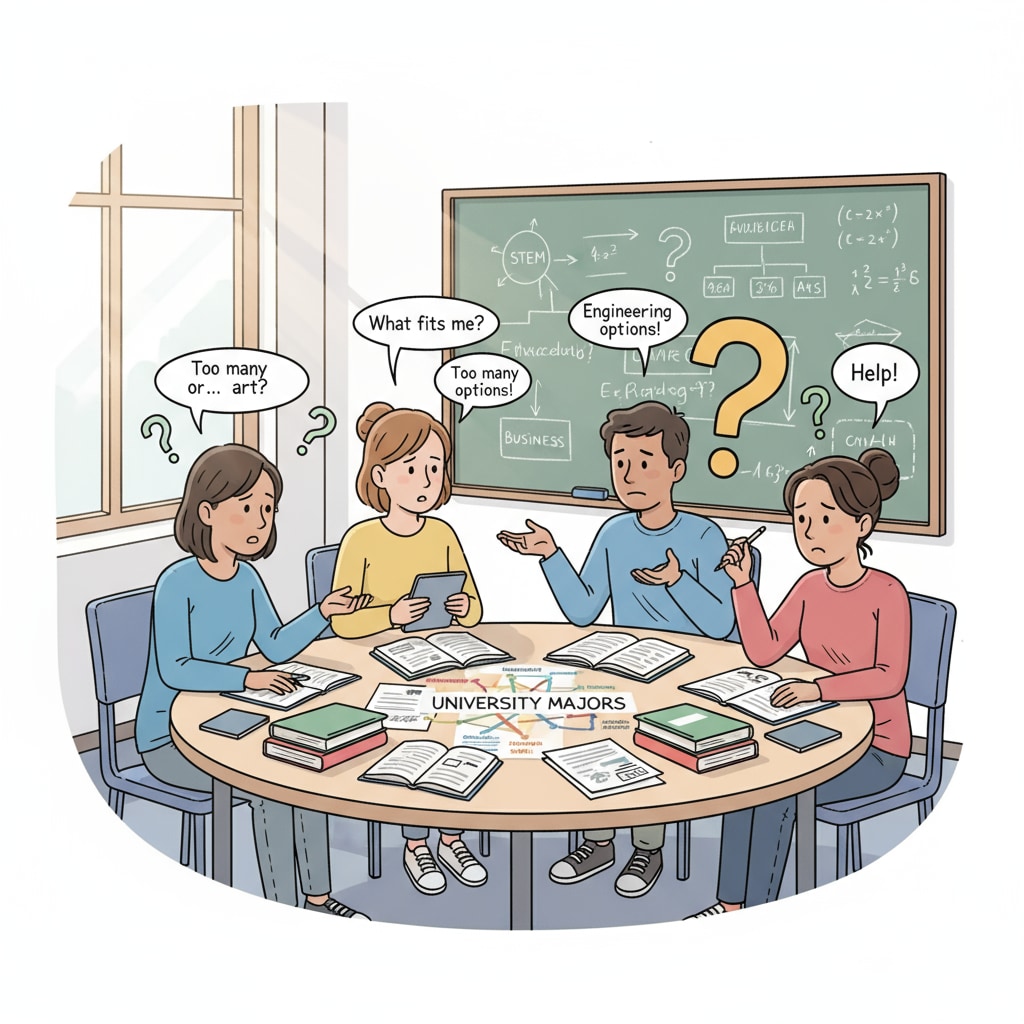University major selection, lack of interest, and social experience often converge to create a challenging crossroads for many 18-year-olds. As students stand on the brink of this significant decision, the absence of a clear passion can make the process seem overwhelming.

This is a crucial juncture where understanding the implications and finding viable solutions becomes essential.
The Dilemma of Interest Deficit
Many high school graduates find themselves in a situation where they lack a distinct interest that could guide their university major selection. This lack of passion can stem from various factors. For example, they may have been so focused on academic performance throughout their school years that they didn’t have the time to explore different fields deeply. As a result, when it comes to choosing a major, they are at a loss. According to Education Data, a significant percentage of students enter college undecided about their majors, highlighting the prevalence of this issue.

The Clash of Social Expectations and Personal Development
In addition to the lack of interest, social expectations play a huge role in the university major selection process. Parents, teachers, and society often have certain expectations regarding which majors are “prestigious” or “lucrative.” This can create a conflict for students. They may feel pressured to choose a major that aligns with these external expectations rather than what they truly want. However, choosing a major solely based on social pressure may not lead to long-term satisfaction or success. As stated by Psychology Today, personal fulfillment in one’s career is closely linked to choosing a path that resonates with one’s interests and values.
To overcome this predicament, students can start with self-exploration. This involves taking personality tests, trying out different extracurricular activities, and having in-depth conversations with professionals in various fields. Another option is to consider delaying the decision. Some universities offer programs that allow students to explore different subjects during their first year or two before declaring a major. Additionally, a multi-faceted evaluation of potential majors, considering factors like job prospects, personal growth opportunities, and long-term goals, can also help students make a more informed choice.
Readability guidance: By breaking down the complex issue of university major selection in the face of a lack of interest and considering social experience, students can take steps towards a more fulfilling college and career journey. Using these strategies, they can turn this challenging crossroads into an opportunity for growth and self-discovery.


